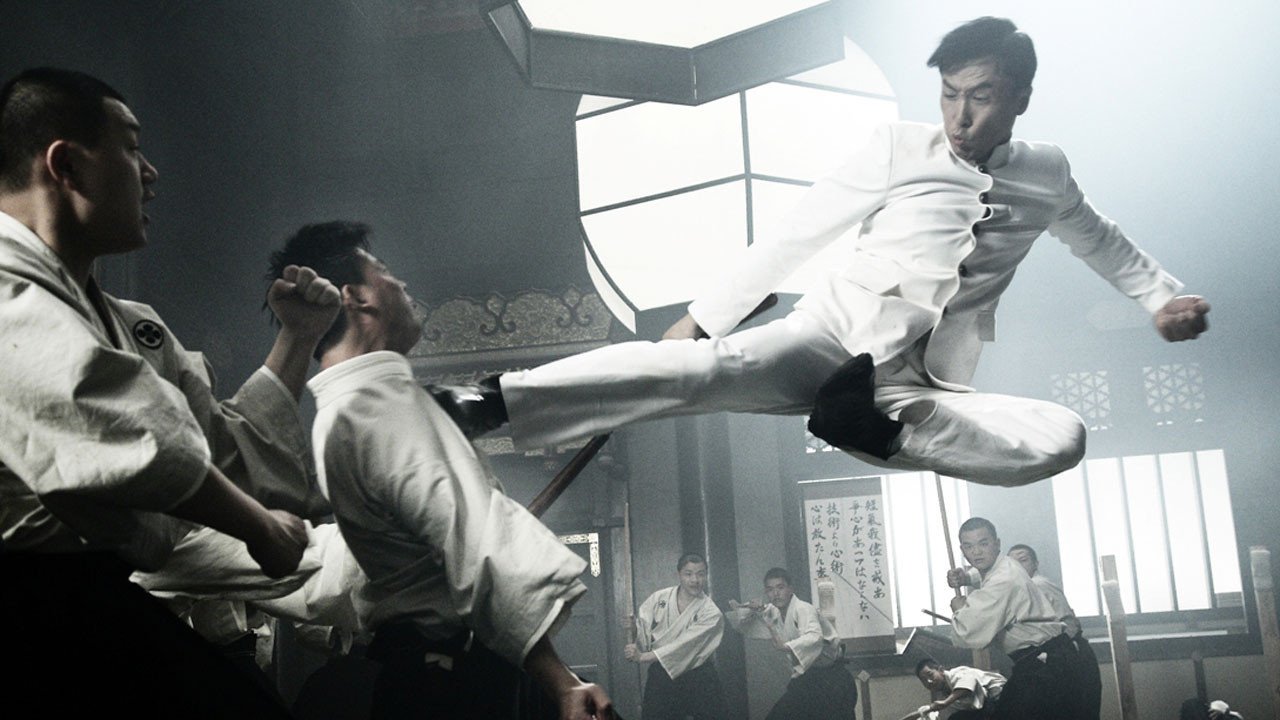Jing Wu Feng Yun (also known internationally as Fist of Legend) is a 1994 Hong Kong martial arts film directed by Gordon Chan and starring Jet Li. Widely regarded as one of the finest martial arts films of the modern era, the movie blends heart-pounding action with nationalistic themes, offering both visual spectacle and emotional depth.
Set during the 1930s in Japanese-occupied Shanghai, Jing Wu Feng Yun follows Chen Zhen (Jet Li), a top martial arts student who returns home after learning that his master, Huo Yuanjia, has died under suspicious circumstances. When Chen begins to investigate, he uncovers a web of deceit involving rival martial arts schools, Japanese military officers, and deep-seated political tensions.
The film escalates into a series of fierce confrontations as Chen defends the honor of the Jing Wu school while challenging the oppressive forces threatening Chinese pride and sovereignty.
1. Jet Li’s Iconic Performance
Jet Li delivers a career-defining performance as Chen Zhen. His portrayal is not just physically commanding—executing flawless fight sequences with precision and grace—but also emotionally restrained and dignified. His quiet fury and intense focus embody a heroic figure steeped in both sorrow and purpose.
2. Choreography by Yuen Woo-ping
The action choreography, orchestrated by the legendary Yuen Woo-ping, is among the film’s standout elements. The fight scenes are brutal, elegant, and clear—eschewing excessive wirework in favor of grounded, powerful techniques. Every fight tells a story and reflects character growth or ideological conflict.
3. Historical and Cultural Layers
Beyond the fists and flying kicks, the film offers a layered narrative about Chinese identity, resistance to imperialism, and the power of self-discipline. The nationalistic undertones are never overly preachy but instead emerge organically through the struggles of the characters.
4. Pacing and Cinematic Quality
From the moment Chen Zhen steps back into Shanghai, the film builds momentum with confident direction, effective lighting, and a grounded color palette that matches the tone. The tension between cultures and martial arts philosophies adds an intellectual edge to the physical conflict.
1. Simplified Characters
While Jet Li’s Chen Zhen is richly developed, some of the supporting characters fall into predictable archetypes—the loyal friend, the villainous colonel, the helpless love interest—limiting the emotional complexity of the ensemble.
2. Melodrama in Romance Subplot
Chen Zhen’s romantic relationship with a Japanese woman adds a layer of emotional tension, but it occasionally veers into melodrama, slightly slowing down the film’s rhythm and undermining its otherwise serious tone.
Jing Wu Feng Yun is more than just a remake of Bruce Lee’s Fist of Fury (1972)—it is a reimagining that surpasses the original in choreography and philosophical nuance. The film played a pivotal role in revitalizing Hong Kong martial arts cinema in the 1990s and reinforced Jet Li's global reputation as a martial arts legend.
Jing Wu Feng Yun stands as a landmark film in martial arts cinema. It’s an exhilarating fusion of stunning choreography, historical depth, and powerful themes. For fans of action cinema, it is an essential watch—and for those unfamiliar with Hong Kong films, it offers an unforgettable introduction.





